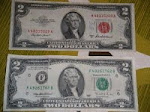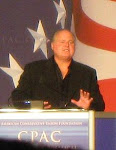Please read this story about Obama financing futuristic car technology.
Then, if you haven't seen it already please watch this expose on GM electric cars of the past and what happened to them. Perhaps if enough of us know history we can prevent the recurrence of the bad parts.
Video="Who Killed the Electric Car?"
-------------
Subscribe to:
Post Comments (Atom)










































































.jpg)













The Smoking Gun
ReplyDeleteBy Tom Dennen
As of right now, the six billion human beings on the planet earth owe the international banking system one hundred and ninety thousand dollars,
Each.
Once may be an accident; twice could possibly be a coincidence but three times in a row is a Declaration of War.
Four times in a row is the arrogance of knowing that the Declaration of War fell on deaf ears.
Five times in a row is quite simply daylight robbery and rape while we are drugged and asleep.
This sixth time should wake us up so that this theft and rape is not visited on a seventh generation:
Every fifty years or so, since 1711, there has been a commodity peak in the leading money markets, followed by a crash (at that time called the South Sea bubble collapse), followed by a depression.
There is a nine-year period between a commodity peak and a market crash, followed over the next ten years or so by a depression.
Add forty-six to that (the average period between depressions) and you have a fifty-year-odd boom-bust cycle meaning, “once a generation we are plucked”.- (Tom Dennen, "A Unified Field Theory of Economics" a work in progress.)
The following compilation is from 'The Great Reckoning' by James Dale Davidson and William Rees-Mogg, Sidgwick & Jackson, 1993.
THE FIRST SHOT FROM THE STILL SMOKING GUN
Commodity prices peaked in London in 1711 (Long before America came into the economic picture). The South Sea Bubble burst nine years later in 1720. Depression followed.
THE SECOND SHOT
·Producer prices peaked in London in 1763. The London stock market crashed again in 1772 (nine years later). Depression followed.
·
THE THIRD SHOT
Commodity prices peaked in London in 1816.The London stock market crashed in 1825 (nine years later). Depression followed.
·
THE FOURTH SHOT
Wholesale prices peaked in New York in 1864. A worldwide assets crash began in May 1873 (nine years later). Depression followed.
·
THE FIFTH SHOT
Then followed our beloved Great Depression in the 30s, about which much has been said, from which, little learned.
THE SIXTH SHOT FIRED – IS THE GUN NOW EMPTY? HAVE WE LEARNED?
Commodity prices peaked in Tokyo, in 1980 some fifty years after the Great Depression started. The Tokyo stock market peaked in 1989 (again, nine years later) and crashed in 1990.
The depression following that crash is now upon us.
“I call this one, 'Grand Theft, Planet”,
WHAT WE OWE THE BANKS
From Tom Foremski (The Silicon Valley Watcher) - October 16, 2008, "According to various distinguished sources including the Bank for International Settlements (BIS) in Basel, Switzerland -- the central bankers' central bank -- the amount of outstanding derivatives worldwide as of December 2007 crossed USD 1.144 Quadrillion, ie, USD 1,144 Trillion. The main categories of the USD 1.144 Quadrillion derivatives market were the following:
1. Listed credit derivatives stood at USD 548 trillion;
2. The Over-The-Counter (OTC) derivatives stood in notional or face value at USD 596 trillion and included:
a. Interest Rate Derivatives at about USD 393+ trillion;
b. Credit Default Swaps at about USD 58+ trillion;
c. Foreign Exchange Derivatives at about USD 56+ trillion;
d. Commodity Derivatives at about USD 9 trillion;
e. Equity Linked Derivatives at about USD 8.5 trillion; and
f. Unallocated Derivatives at about USD 71+ trillion.
The Size of Derivatives Bubble now equals $190K Per Person on the Planet.
"Exponential economic growth required by the mathematics of compound interest on a money supply based on money as debt must always run up eventually against the finite nature of Earth's resources." - British financial analyst Chris Cook.
“ 'Unregulated financial market' means that banks are allowed to charge compound interest. Even ancient Rome capped interest at max 5% and compound interest (usury) was outlawed (See Tacitus, The Annals of Rome, Chapter Six, a.d. 29).
We’ve been robbed again. Q.E.D.